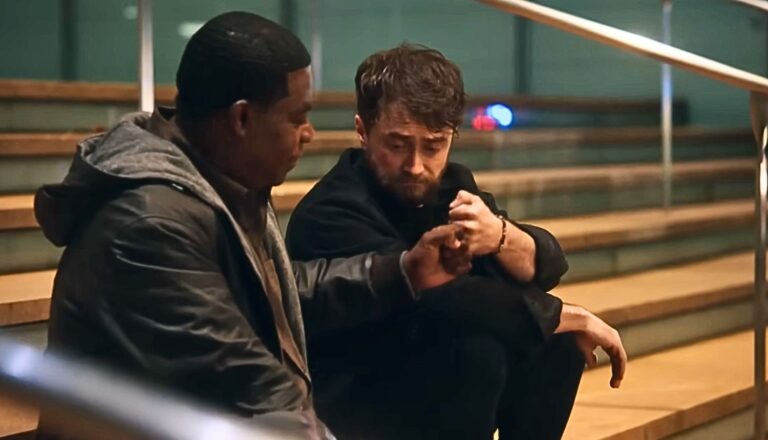
The Fall and Rise of Reggie Dinkins
‘The Fall and Rise of Reggie Dinkins’ is a mockumentary speaking to second chances—though audiences may not want to give it a first chance.
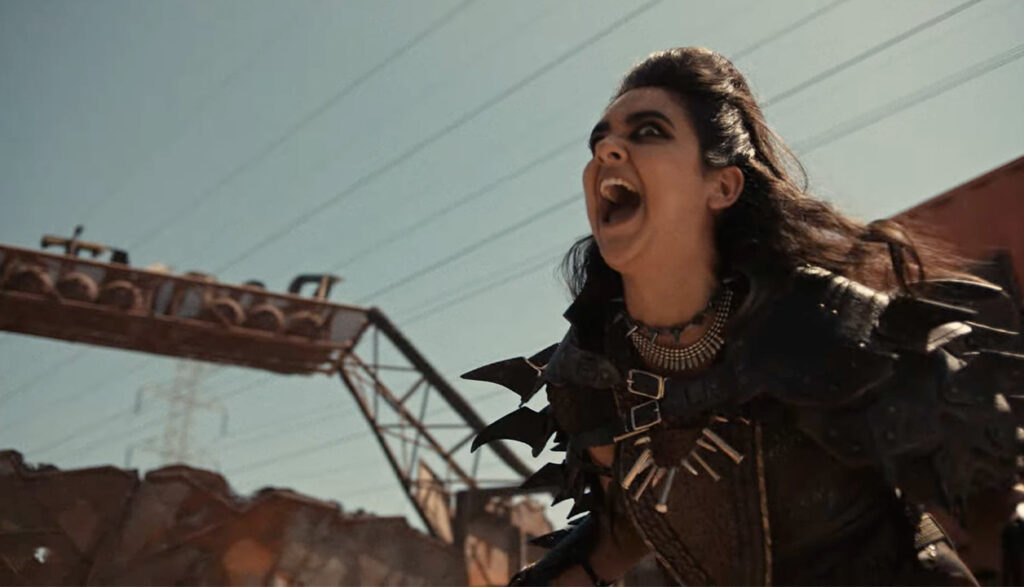
The world has ended.
Nuclear war has reduced the earth to a desert wasteland. Humans live in Mad Max-esque communities. But Sid and Freya just got married.
Seems a strange time to pursue nuptials, but it was love at first blade for these wandering warriors. And now, they’re ready to settle down in a suburb-equivalent called Boomtown.
Miracle Workers is an anthology series, each of which comes with its own seasonal theme and subtitle. (Season Four, for instance, is labeled Miracle Workers: End Times.) So we’d be remiss not to mention that the first season of this show turned God into a spoiled, out-of-touch CEO who just doesn’t seem to care about the world anymore. Maybe He once did, the show says, but He sure doesn’t now. The third season featured a sacrilegious reverend as the main character. And there’s an episode titled “John Christ” in Season Four.
But Miracle Workers isn’t trying to be sacrilegious as much as it wants to tell an optimistic, even heartwarming story of personal fulfillment and redemption, using tropes that its audience is familiar with but ideas TBS doesn’t necessarily believe people care about anymore.
Unfortunately, this TV-MA rated show is filled with harsh language (a family’s surname in Season Two prominently features the s-word), sexual allusions (including a leather clad man serving as a couple’s dog in Season Four) and, especially in the latest season, brutal violence.
It’s all played for humor, but no matter, really: The show’s content concerns are mere sideshows to its problematic worldview—elements that might invite a handful of viewers to ponder deeper spiritual questions while alarming and disgusting a great many others.
After marrying, Sid and Freya, a couple used to fighting (and killing) for their lives in the wastelands, adjust to a more peaceful lifestyle in the suburbs of Boomtown.
Characters fight with blades, bullets and pure brawn—often to the death. Several people graphically describe how a man was beaten (and we later see him covered in bruises and bandages). We see stock footage of nuclear bombs exploding. A man eats an arm that appears to be human. A couple stomps a human skull at a wedding. Sid dons a train-conductor uniform and claims he pulled it from a corpse.
A man wearing skimpy leather garments acts like a couple’s dog. (Many of his lines and actions, while normal for a dog, come off as sexual when performed by a human.) A robot alludes to sexually transmitted diseases while recounting his night of passion with another bot. A couple makes out passionately. They smooch in several other scenes as well. Many people in revealing outfits dance at a party. A male robot winks at a man in a suggestive manner. A hologram is programmed to act as a man’s wife, claiming she loves to do his chores and fulfill his every need (and it’s implied this includes sexual acts).
Someone shouts “mazel tov” at a wedding. Freya claims to be “high priestess of all Cincinnati” and demands that people worship her. (They don’t.) A man is scared that a hologram is a ghost.
A junk monger takes advantage of his customers, scamming them out of money. The same man insults several people. Sid admits he suffered from depression while living in the wastelands. People eat fried rats and cockroaches. A man makes a rude comment about robots (who are treated as sentient beings here). We hear someone vomited and then ate it.
There are six misuses of God’s name (including one paired with “d–n”). We also hear a few uses of “a–,” “b–ch” and “d–mit.” The world is described as a “hellscape.”
In “Heaven, Inc.,” Eliza petitions for a transfer to the Department of Answered Prayers. But when a coworker, Craig (and the only other angel in the department), refuses to do anything more challenging than helping people find their lost belongings, she stumbles into God’s office and suggests he take a little more active role in his creation.
God decides to do just that: He calls the corporation together and announces he plans to blow up the world. Eliza and Craig ultimately convince him to call off his plans if they can answer an “Impossible” prayer: Getting two already-interested humans into a relationship with each other.
God initially says that they’ll need to have sex before he’ll consider the miracle sealed. “I think they really have to do it,” he tells Eliza. (She talks him down to a kiss.) The deity also drinks quite a bit of beer, unsuccessfully launching an empty bottle toward a trashcan. (God’s longsuffering servant, Sanjay, sweeps up the mess.)
God also avoids work. He’s deeply disappointed that a board meeting to discuss his long-gestating plan to “end all pain” was not a fantasy-football draft. He watches loads of televisions that televise the terrible things going on in the world (including the melting of the polar ice caps), then tunes into an apparently famous racecar driver thanking God for his victory.
“Great things happen every day,” the driver insists. “Great things!” That’s the end of the clip, after which a newscaster says it was the last interview the driver ever gave before he was killed in a horrific crash. (We see a fire engulf a car on television.)
Eliza and Craig help a man find a missing glove, but the man turns out to be a serial killer: Later, a news anchor says that the mysterious murderer is on the loose, and police haven’t been able to find a single fingerprint. Eliza changes the weather so that a farmer can get some rain for his crops, but the alteration causes a typhoon causing the death of “thousands” and bringing misery to countless more.
A HR official in heaven speculates that, 30,000 years ago, a handful of cavemen and some dinosaurs got “sick a– nasty in a cave somewhere.” We see a poster of new, improved humans scheduled to be rolled out in 2028. Both the drawn figures are in bathing suits and muscular. A poster claims (in bubble dialogue) that they’ll be immortal.
Workers in the Department of Volcano Safety seem pretty apathetic. A man prays unsuccessfully to be saved from wolves. (We don’t see his presumably grisly end, but we do hear screams and growls in the background.) We hear references to suicide, chamber pots and loincloths. God describes what it’ll be like for Eliza to eat a worm.
Characters say “d–n” and a handful of other profanities, though most were censored in the YouTube version of the show I watched.

Paul Asay has been part of the Plugged In staff since 2007, watching and reviewing roughly 15 quintillion movies and television shows. He’s written for a number of other publications, too, including Time, The Washington Post and Christianity Today. The author of several books, Paul loves to find spirituality in unexpected places, including popular entertainment, and he loves all things superhero. His vices include James Bond films, Mountain Dew and terrible B-grade movies. He’s married, has two children and a neurotic dog, runs marathons on occasion and hopes to someday own his own tuxedo. Feel free to follow him on Twitter @AsayPaul.

Emily studied film and writing when she was in college. And when she isn’t being way too competitive while playing board games, she enjoys food, sleep, and geeking out with her husband indulging in their “nerdoms,” which is the collective fan cultures of everything they love, such as Star Wars, Star Trek, Stargate and Lord of the Rings.

‘The Fall and Rise of Reggie Dinkins’ is a mockumentary speaking to second chances—though audiences may not want to give it a first chance.
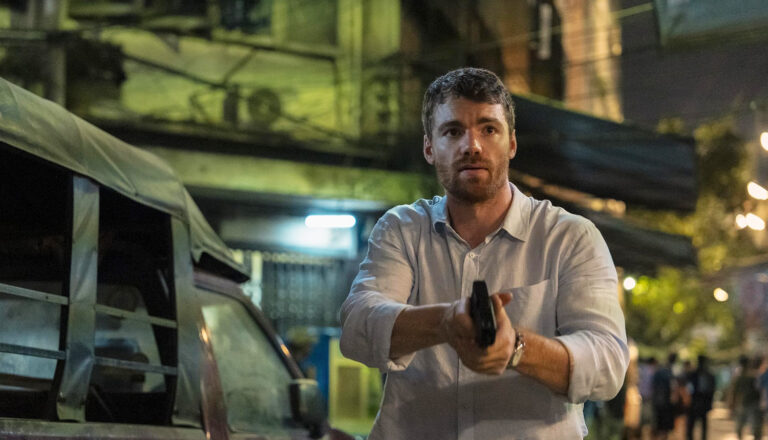
As far as spy thrillers go, The Night Agent is par for the course. But as far as family viewing goes, it might be better to blacklist this one.
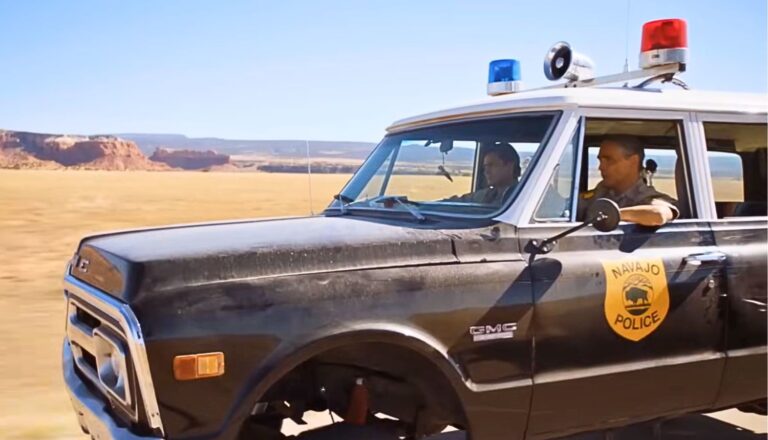
AMC+ brings to life a murder-mystery series set in New Mexico, steeped in Navajo ways and filled with dark magic.
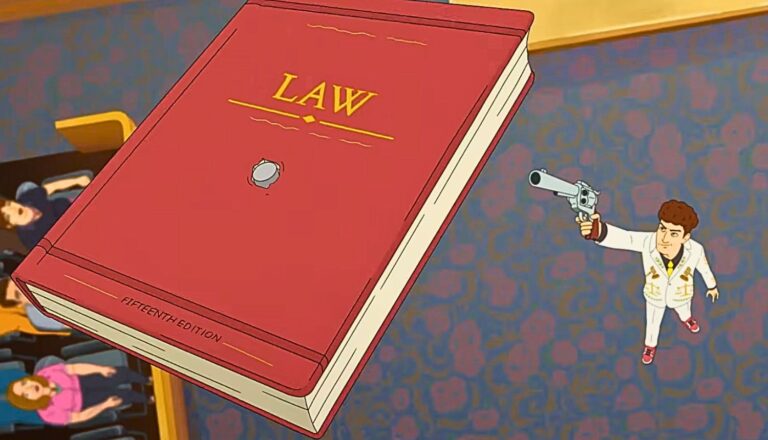
‘Strip Law’ is Netflix’s next carbon-copy adult animated comedy whose unoriginality extends even into its crass content.